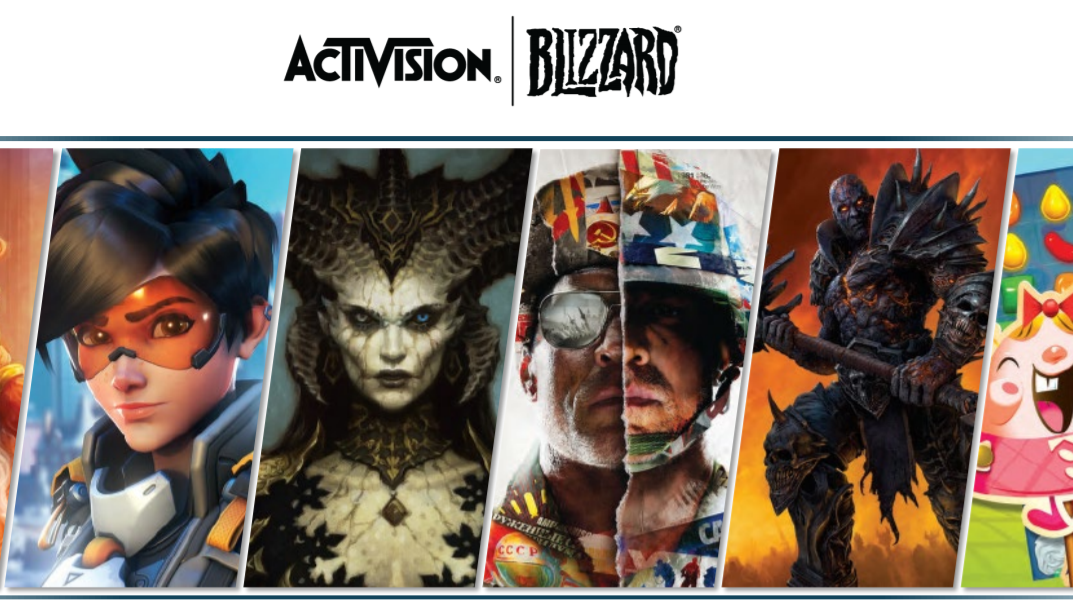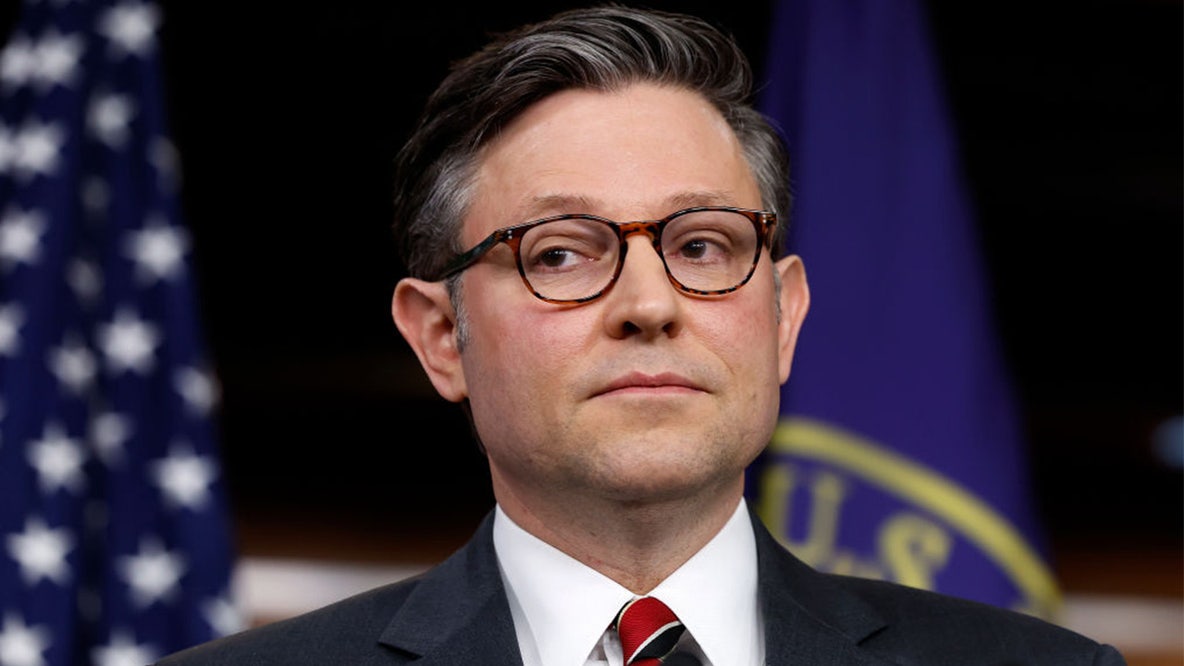Microsoft-Activision Deal: FTC's Appeal And Its Implications

Table of Contents
The FTC's Case Against the Microsoft-Activision Deal
The FTC's core argument against the Microsoft-Activision deal centers on the potential for anti-competitive behavior, specifically harming competition and consumers. They argue that the merger would grant Microsoft undue control over the gaming market, stifling innovation and leading to higher prices for consumers.
-
Reduced competition in the console gaming market: The FTC contends that Microsoft acquiring Activision Blizzard, a major player with popular franchises, would significantly reduce competition with Sony's PlayStation, giving Microsoft an unfair advantage. This is particularly relevant given the growing importance of exclusive game titles in attracting consumers to specific platforms.
-
Control over key gaming franchises like Call of Duty: The FTC highlights the immense popularity of franchises like Call of Duty, World of Warcraft, and Candy Crush Saga. They argue that Microsoft could make these titles exclusive to Xbox, harming PlayStation users and potentially forcing them to switch platforms or miss out on popular games.
-
Potential for higher prices and reduced innovation: The FTC believes that reduced competition could lead to higher game prices and less innovation. With less pressure to compete, Microsoft might be less incentivized to offer competitive pricing or invest in new game development.
-
Harm to consumers due to limited choice and higher prices: Ultimately, the FTC's argument boils down to a concern for consumer welfare. They argue that the merger would limit consumer choice, leading to higher prices and a less diverse gaming market.
Despite the FTC's concerns, a judge initially ruled against the FTC, a decision the commission is now appealing. The judge's reasoning largely centered on a lack of sufficient evidence to demonstrate the merger's anti-competitive effects.
The FTC's Appeal and its Strategic Significance
The FTC's appeal of the initial ruling is highly significant, representing a robust challenge to the merger. The strategic implications for both Microsoft and Activision Blizzard are substantial.
- Potential Outcomes:
- A successful appeal: This outcome would likely delay, or even completely block, the Microsoft-Activision deal, forcing Microsoft to renegotiate terms or abandon the acquisition.
- An unsuccessful appeal: A dismissal of the appeal would solidify the merger, allowing Microsoft to fully integrate Activision Blizzard.
- Legal precedent: Regardless of the outcome, the case will set a significant legal precedent, influencing future mergers and acquisitions in the tech industry, particularly within the gaming sector.
The appeal impacts not just Microsoft and Activision, but the entire gaming industry. It signals a heightened level of regulatory scrutiny for large tech mergers and raises questions about the future of consolidation in the video game market.
Antitrust Concerns and the Future of Gaming Mergers
The FTC's actions underscore a broader trend of increased antitrust concerns surrounding large tech company mergers. This case is shaping the evolving regulatory landscape for tech M&A, particularly concerning the impact of cloud gaming.
-
Increased scrutiny of large tech company mergers: The Microsoft-Activision deal is a high-profile example of growing regulatory scrutiny of mergers involving tech giants. Expect increased vigilance from regulatory bodies worldwide.
-
Potential for stricter regulations in the gaming industry: The outcome of this case could lead to stricter regulations regarding mergers and acquisitions in the gaming industry, potentially impacting future deals.
-
The role of cloud gaming in antitrust considerations: The rising influence of cloud gaming adds another layer of complexity to antitrust considerations. The control over game distribution platforms and cloud services is a significant factor in the FTC's concerns.
Impact on Consumers and the Gaming Landscape
The success or failure of the Microsoft-Activision deal will have profound implications for gamers worldwide.
- Potential Scenarios:
- Exclusive content and platform lock-in: If the deal goes through, Microsoft might make Activision Blizzard games exclusive to Xbox, potentially locking out PlayStation users and creating a less competitive gaming landscape.
- Changes in subscription services and pricing models: The merger could influence subscription services like Xbox Game Pass, potentially changing pricing and game availability.
- Impact on game development and competition: The merger's impact on game development and competition remains uncertain. While some argue it could foster innovation, others fear it could stifle competition and reduce game variety.
Conclusion
The FTC's appeal of the ruling on the Microsoft-Activision deal is a pivotal moment for the gaming industry and antitrust law. The outcome will significantly influence competition, consumer choice, and the future of large tech mergers. Understanding the nuances of this case is essential for anyone involved in or interested in the gaming industry and its evolving regulatory environment. Stay informed about the latest developments in the ongoing Microsoft-Activision deal, as its resolution will profoundly shape the future of gaming. Regularly check reputable news sources for updates on this crucial legal battle.

Featured Posts
-
 Hope And Liams Relationship Tested A Recap Of The Bold And The Beautiful Wednesday April 16
Apr 24, 2025
Hope And Liams Relationship Tested A Recap Of The Bold And The Beautiful Wednesday April 16
Apr 24, 2025 -
 Blue Origin Postpones Launch Details On Subsystem Issue
Apr 24, 2025
Blue Origin Postpones Launch Details On Subsystem Issue
Apr 24, 2025 -
 High Profile Office365 Breach Results In Multi Million Dollar Loss
Apr 24, 2025
High Profile Office365 Breach Results In Multi Million Dollar Loss
Apr 24, 2025 -
 John Travolta Addresses Candid Bedroom Photo Shared From 3 M Home
Apr 24, 2025
John Travolta Addresses Candid Bedroom Photo Shared From 3 M Home
Apr 24, 2025 -
 Saudi Arabia And India Partner To Build Two New Oil Refineries
Apr 24, 2025
Saudi Arabia And India Partner To Build Two New Oil Refineries
Apr 24, 2025
